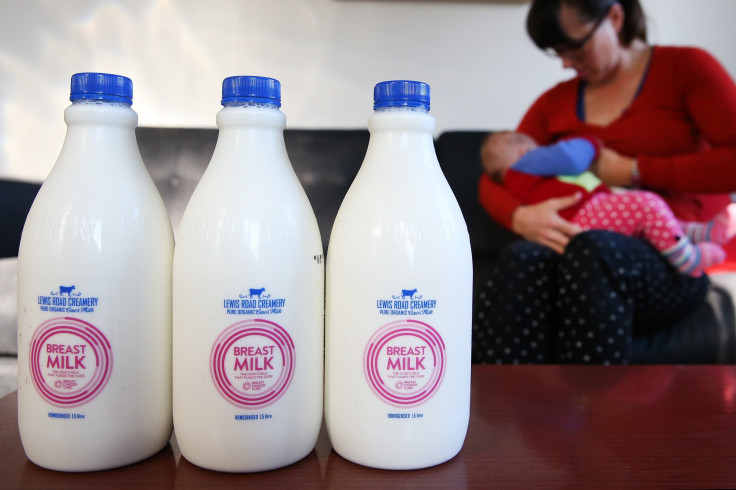World Breastfeeding Week 2018: Benefits Of Breast Milk, When Not To Breastfeed

World Breastfeeding Week, which begins Aug. 1 and ends Aug. 7, is an annual observance to raise awareness among mothers about the benefits of breast milk all across the globe.
The World Health Organization themed this year’s World Breastfeeding Week, “Breastfeeding: Foundation for Life — a recognition of the importance of breastfeeding to a baby’s future.”
It is a time to remind first-time or future mothers that breastfeeding is supposed to work almost like a newborn’s first vaccine, which provides vital antibodies and an immunity boost. These are not just the reasons your baby should only be fed breast milk for the first 26 weeks of his or her life.
Benefits of Breastfeeding
Here are the benefits of breast milk that you might be unaware of:
1. According to National Health Service, breastfeeding reduces the chances of your baby being prone to illnesses such as diarrhea and vomiting, Sudden Infant Death Syndrome, childhood Leukemia, obesity, cardiovascular diseases and various forms of infections.
2. Colostrum, a yellowish-fluid, which is produced ahead of breast milk and is rich in healthy proteins, nutrients and antibodies, provides factors that promote maturation of the gut and good digestion. It is easily absorbed by the baby’s body and his or her fast-developing brain, according to Australian Unity.
3. Breast milk contains a full range of vitamins and minerals in an easily digestible combination, adapting to the diet requirements of a child, hence preventing childhood malnutrition or early onset of obesity.
4. The baby is less likely to get allergies or nappy rash and thrush.
5. It promotes the proper development of baby’s jaw and teeth, along with preventing chances of getting cavities.
6. It also has emotional benefits for the child, as breast feeding fortifies the bond between a mother and her infant.
7. The act of breastfeeding is not only beneficial for babies but also mothers. For one, mothers who breastfeed tend to lose their post-pregnancy weight and get back their pre-baby body more easily.
8. Breastfeeding releases hormones that create feelings of warmth and calm in the mother.
9. It also reduces the chances of woman getting breast cancer in the future.
10. A mother’s uterus contracts and flow of blood gradually ceases after delivery, once the baby starts breastfeeding.
When not to breastfeed your baby
There are only a handful of exceptions during which mothers are specifically advised not to breastfeed their babies:
1. If a woman is an addict and is habituated to taking drugs such as cocaine, PCP, heroin, marijuana and so on, she should not breastfeed her child as these substances may enter the newborn’s body through the milk.
2. If the mother has consumed alcohol, she must wait for at least two hours for the alcohol to pass her system before she can breastfeed her child.
3. If a mother is diagnosed with HIV, she is advised not to breastfeed her baby. Not only does the mother risk passing on the HIV virus to the baby, the antiretroviral medications the former might be taking can also enter into the blood stream of the newborn, risking his/her health.
4. The same goes for mothers who have cancer and are receiving radiation therapy, has tuberculosis that has not been brought under control or infected with human T-cell lymphotropic virus type I or type II.
5. Babies who are suffering from a case of classic galactosemia (a medical condition where the baby is unable to digest breast milk because their body is unable to break down lactose and galactose) cannot be breastfed.
For mothers who could not breastfeed, there was always the baby formula.
“In that case, formula is a safe and healthy alternative option," Dr. Tars Narula, Assistant Professor Cardiology & Associate Director CCU Lenox Hill Hospital, Northwell Health, told “CBS This Morning.” "It's been around since the 1920s. It's evolved over time to try to meet the composition and performance of breast milk. It's never going to meet it exactly because it doesn't have the antibodies, but manufacturers have to meet nutrient requirements set by the FDA and they all have similar compositions of protein, carbohydrates, vitamins, mineral, water and fat."
© Copyright IBTimes 2024. All rights reserved.






















